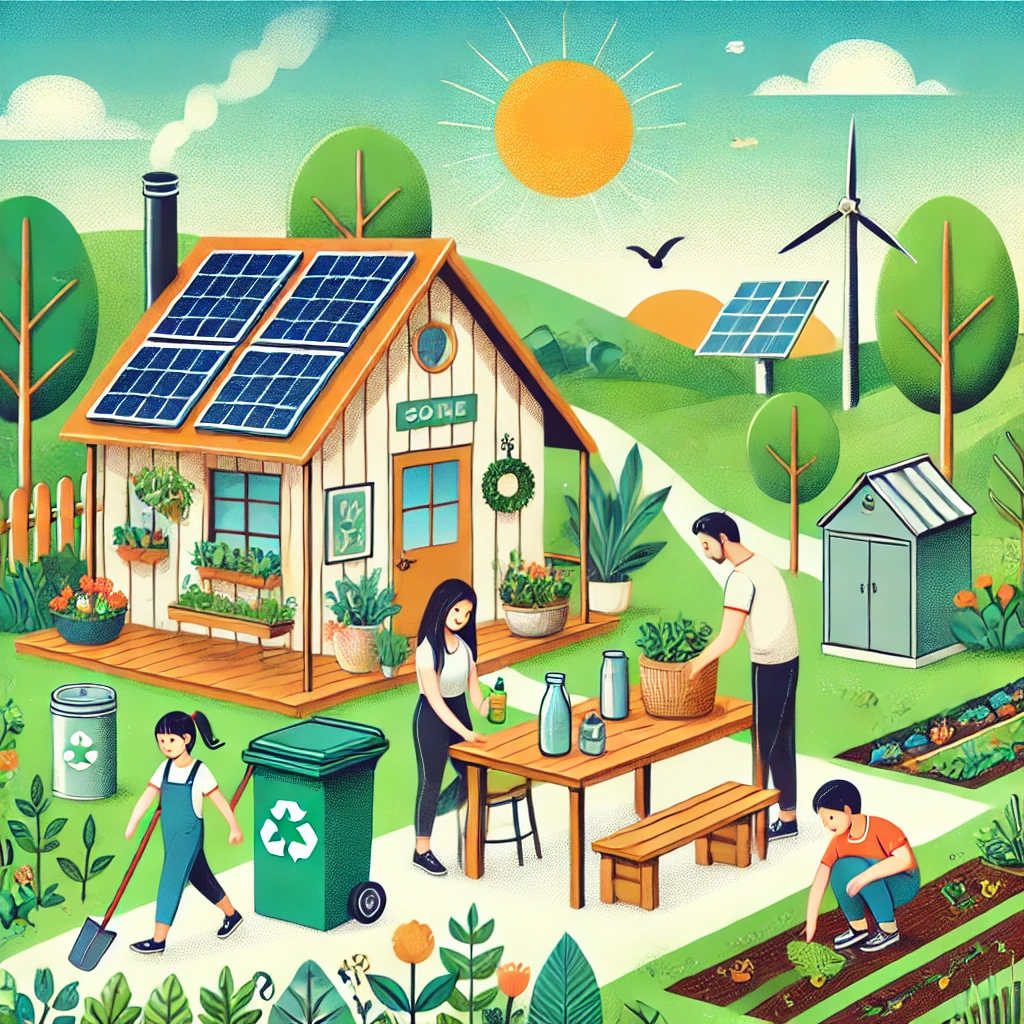Introduction
Every day, our choices ripple out to affect the planet. Consider this: using a disposable coffee cup might seem harmless, but billions of these cups end up in landfills annually, contributing to waste and pollution. While global environmental challenges can feel overwhelming, the truth is, small, individual actions can make a significant difference. By adopting eco-friendly habits, we not only reduce our carbon footprint but also inspire others to do the same. Let’s explore simple, actionable changes that lead to a healthier planet and lifestyle.
Reducing Waste
Waste reduction is one of the most effective ways to live sustainably. Every year, the average person generates over 1,000 pounds of waste. But small shifts in our habits can drastically cut down this number.
- Switch to Reusable Items: Replace single-use plastics with reusable alternatives. For example, carry a stainless-steel water bottle, use cloth shopping bags, and invest in beeswax wraps instead of plastic wrap.
- Composting: Turn food scraps into nutrient-rich compost for your garden instead of sending them to landfills, where they produce methane, a potent greenhouse gas.

Adopting Minimalism
Minimalism isn’t just about decluttering your home; it’s about reducing consumption and living intentionally. Buying less reduces demand for resource-intensive manufacturing processes and waste production.
- Buy What You Need: Before purchasing, ask yourself, “Do I really need this?” Focus on quality over quantity.
- Repurpose and Repair: Extend the life of items by repairing instead of replacing and finding creative ways to repurpose old belongings.
Minimalism not only lightens your environmental impact but also improves mental well-being by reducing the stress of excess clutter.

Choosing Eco-Friendly Products
Opting for products made from sustainable materials or by eco-conscious brands can drive significant environmental change. Here’s how:
- Support Sustainable Brands: Look for certifications like Fair Trade, organic, or cruelty-free.
- Eco-Friendly Packaging: Choose products with minimal or biodegradable packaging.
- Green Cleaning Supplies: Many conventional cleaning products contain chemicals that harm aquatic ecosystems. Switch to natural, non-toxic alternatives.

Embracing Renewable Energy
Transitioning to renewable energy sources is a game-changer for reducing your carbon footprint. While installing solar panels might not be feasible for everyone, there are simpler ways to incorporate renewable energy into daily life.
- Switch to Green Energy Plans: Many utility companies offer options to power your home with renewable energy.
- Energy-Efficient Appliances: Upgrade to energy-efficient appliances and LED bulbs to save energy and reduce costs.
These changes not only benefit the environment but also save money in the long run.
The Power of Small Changes
Even small adjustments can create a big impact over time. For instance, if every American replaced one single-use plastic bag with a reusable bag daily, it would save over 500 billion plastic bags annually. Similarly, choosing to bike or walk for short trips instead of driving can significantly reduce greenhouse gas emissions.
A Challenge for You
Let’s put theory into practice. Choose one sustainable habit from this blog, whether it’s carrying a reusable water bottle, composting, or switching to eco-friendly products, and commit to it for one month. Track your progress and observe the changes in your waste production, energy use, or overall lifestyle. Share your journey with others to inspire a ripple effect of sustainability.
By taking small, consistent steps, we can collectively pave the way for a greener future. The planet needs us, and every action counts. Start today, because together, our small changes create a big impact.







Leave a Reply